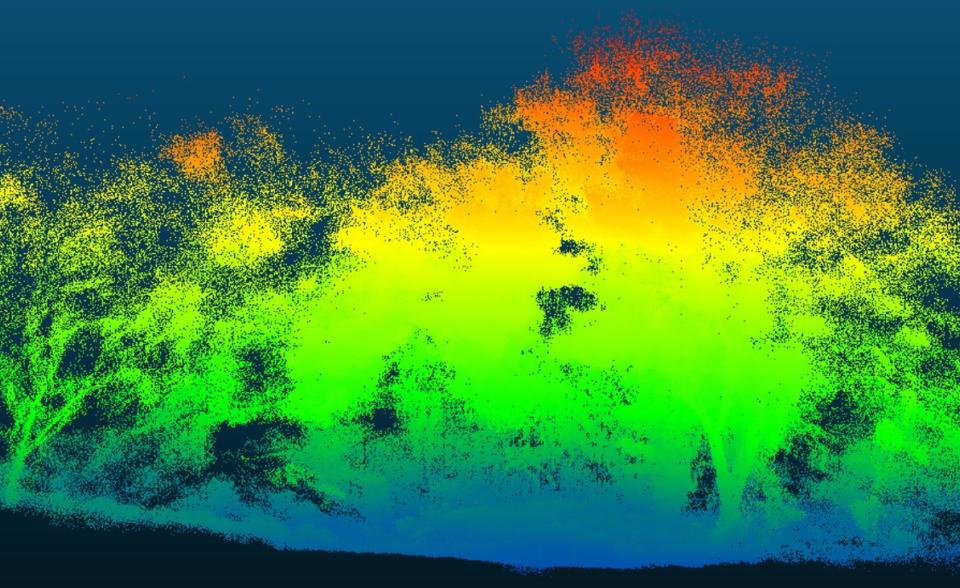-
Date:
From 26 Jan 2026 until 30 Jan 2026
-
Deadline for Applications:
19 Dec 2025
-
Location:
Room 2.3.37, Faculdade de Ciências da Universidade de Lisboa, Campo Grande 1749-016 Lisboa
-
Duration:
36 hours (contact hours)
-
Schedule:
9h00-12h30 and 14h00-17h30, Monday-Thursday; 9h00-13h00 and 14h00-18h00 Friday
-
Lecturer or Responsible:
Maria Alexandra Oliveira (CE3C-SystEco), Adriana Príncipe Silva (CE3C-ECOR), João Nuno Silva (INESC-ID/IST), Pedro Pinho (CE3C-urbanE), Inês Domingues (CE3C-ECOR, SystEco), Mariana Ramos (CE3C-SystEco)
-
Department Responsible:
Departamento de Biologia Vegetal, Faculdade de Ciências da Universidade de Lisboa
-
Nº (min - max) Students:
10-20

Objectives
Remote sensing is becoming an invaluable tool extending data collection, both in space and time, to complement classical sampling strategies for both earth and biological sciences. This advanced course aims to provide access and tools to remote sensing data acquisition and processing for different applications using satellite, drone and terrestrial multispectral imagery and LiDAR, and focusing on characterizing the vegetation and landscape, and their changes in time.
Participants must be present at 85% of the contact hours (meaning they can miss one half-day) and actively participate in all activities.
This course may have a correspondence in terms of credits toward PhD programmes at CIÊNCIAS or programmes jointly offered by CIÊNCIAS and partner institutions, with 6–7 hours of contact time per ECT, depending on specific requirements. For these students, in addition to the exercises completed during the week, submission of a written report two weeks after the course is mandatory. For programmes with fewer contact hours per ECT (6h/ECT), students must complete an additional assignment (a summary report). If necessary, 1 or 2 extra contact hours may be added. These reports are also recommended for other PhD students seeking recognition of the course by their institutions.
Minimum requirements: Bachelor’s degree in Earth Sciences, Biology, Natural Science, or related areas. Basic programming skills (python/R) and knowledge on geospatial data processing.
Directed to: MSc or PhD students in Biology, Geology, Environmental Sciences, Ecology or related areas, postdocs and professionals working on related topics.
General plan
Day 1
Theoretical introductions concerning remote sensing sensors (active and passive) and platform (satellite, drone, terrestrial). Data access platforms: available satellites and products, Remote Sensing data visualization using web portals, data download and visualization.
Day 2
Theoretical introduction and practical classes on programming using R and/or python to access, download and process remote sensing data.
Day 3
Morning: use cases showcasing work involving researchers from the cE3c that used remote sensing data.
Afternoon: Practical session (eventually some field work nearby for data collection using terrestrial LiDAR, NDVI and multispectral cameras).
Day 4
Practical session for remote sensing data download and processing in areas of interest of the students (data is also available for students without study areas).
Day 5
Practical sessions and presentations from the students.
Fees
Free for 1st year PhD students in Doctoral programmes at CIÊNCIAS (e.g. Biology, Geology), Biodiversity, Genetics and Evolution (BIODIV ULisboa; UPorto), Biology and Ecology of Global Changes (BEAG ULisboa, UAveiro) and Sustainability Science (ULisboa, several institutions), when the course counts credits for their formation, in which case the delivery of a final report done after the course is mandatory; the course is also free for more advanced PhD students of the BIODIV programme (ULisboa or UPorto); 50 € for more advanced PhD students of CE3C; 70 € for PhD students of the PEERS network (CFE); 125 € for CIÊNCIAS Master students and unemployed; 180 € for BTI, BI and other PhD students; 250 € for professionals and postdocs.
When the maximum number of students is reached, 10 vacancies will be available for non-paying 1st year PhD students mentioned above, being, by order of preference, students from: 1) CE3C; 2) BIODIV (not from CE3C); 3) CIÊNCIAS (not from CE3C); 4) Sustainability Science (not from CE3C or CIÊNCIAS); 5) BEAG (not from CE3C or CIÊNCIAS).

